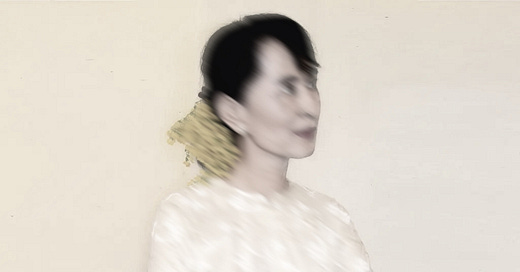Aung San Suu Kyi was once a symbol of democracy and human rights, earning a Nobel Peace Prize in 1991 for her resistance to (Burma) Myanmar's military dictatorship. However, her international reputation crumbled after she failed to defend the Rohingya, a Muslim minority in Myanmar subjected to brutal ethnic cleansing by the military in 2017. Over 700,000 Rohingya were driven from their homes, facing widespread violence, rape, and destruction. Suu Kyi's refusal to condemn the atrocities, even defending the military at the International Court of Justice, shocked the global community.
The Rohingya, who have long faced discrimination and statelessness in Myanmar, were subjected to an intense and brutal campaign of ethnic cleansing beginning in August 2017. The Myanmar military, known as the Tatmadaw, launched a coordinated offensive in Rakhine State, where most Rohingya lived. This campaign was ostensibly in response to attacks by the Arakan Rohingya Salvation Army (ARSA), a militant group, on police posts. However, the scale and nature of the military's response were disproportionate and targeted civilians.
Reports and investigations revealed that military forces systematically killed thousands of Rohingya men, women, and children. There were numerous accounts of sexual violence against Rohingya women and girls, used as a weapon of war and terror. Entire Rohingya villages were burned to the ground, leaving survivors without homes or resources.
However, the once-lauded Suu Kyi did not condemn the military's actions. Instead, she denied allegations of ethnic cleansing and claimed that the situation was being misrepresented. Her silence and defensiveness led to accusations of complicity.
Suu Kyi's defense of Myanmar's military at the International Court of Justice (ICJ) in 2019 further damaged her reputation. She argued that the military's actions did not constitute genocide, a stance that was widely criticized internationally.
The Rohingya crisis and Suu Kyi's response revealed a significant flaw in the perception of her as an infallible hero. Her inability—or unwillingness—to address the crisis and hold the military accountable undermined her image as a champion of human rights. This failure highlighted the dangers of placing too much hope and idealization on individual leaders rather than focusing on systemic reforms and collective accountability.
Suu Kyi's fall from grace underscores a broader lesson about leadership and accountability. It is important to recognize that no individual is above scrutiny, and real progress requires robust systems that ensure justice and human rights rather than relying solely on charismatic leaders. The crisis also serves as a reminder of the complex and often cyclical nature of political power and the importance of maintaining vigilance and advocacy for marginalized communities.
The tragedy lies in the idolization of figures like Suu Kyi, who are placed on pedestals as infallible heroes. Such idolization can blind people to their flaws and complicate accountability. Suu Kyi's silence and complicity demonstrate the dangers of tying hope to a single individual. Her downfall underscores the need for broader, more inclusive movements rooted in principles rather than personalities.
Today, Suu Kyi remains under house arrest after a military coup in 2021, reflecting the complex and cyclical nature of power in Myanmar. (She recently turned 79 while under house arrest). The deeper issue is the myth of infallibility tied to icons of change. Suu Kyi's tarnished legacy shows that even those once seen as champions of justice can fall short when confronted with complex realities. It’s a reminder that real progress depends not just on individuals but on systems that hold everyone accountable—no matter how revered they once were.
FOR EXCLUSIVE GLOBAL CONTENT AND DIRECT MESSAGING, PLEASE CONSIDER A PAID SUBSCRIPTION TO THIS SUBSTACK TO HELP KEEP INDEPENDENT, AGENDA-FREE WRITING AND JOURNALISM ALIVE. THANK YOU SO MUCH FOR YOUR SUPPORT.
For speaking queries please contact meta@metaspeakers.org
For ghostwriting, personalized mentoring or other writing/work-related queries please contact hollie@holliemckay.com
Follow me on Instagram and Twitter for more updates
Order The Dictator’s Wife (out June 10)
Click Here to Order from my publisher DAP Publications (please support small business!)
Click to Purchase all Other Books Here





